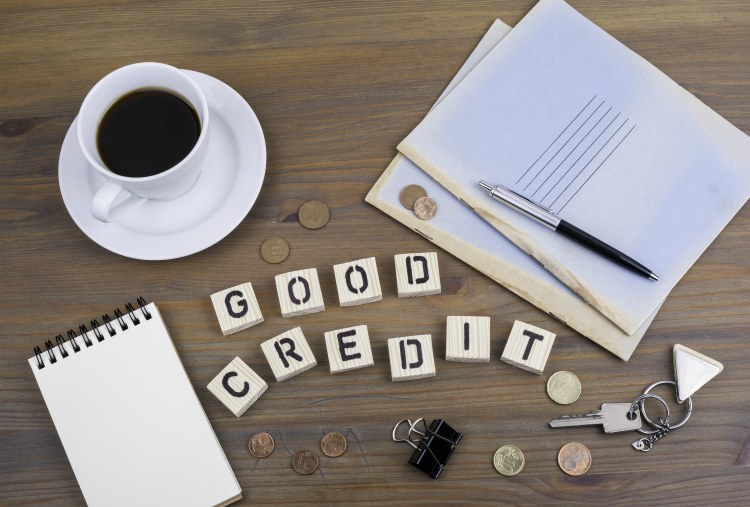What Does A Credit Score Mean?
Credit usually revolves around obtaining goods or services before payments are made, based on the trust and agreement that timely repayments will be made in future.
This implies that where a good or service has been obtained and payments are to be made in future, the borrower is under obligation to repay and after making such payments, he/she shall be declared credit worthy for the next loan if need be.
Records on the payment of a loan shall be noted and a score is issued depending on how quick he/she did make the payments.
This is the credit score.
Improve Your Credit Score
A credit score is a number given to an individual indicating the ability of the individual in question to pay back a loan to the lenders.
Therefore, it depicts an individual’s credit worthiness.
Lenders consequently use the credit score to evaluate the probability that a person shall not only be willing to repay the loan, but able to do so.
The credit score is always written in three digit numbers, which in most instances ranges from 300 to 850, with the highest score that an individual can attain being 850.
Persons having higher scores are highly trusted and are more likely to be considered for credit.
Thus the higher the credit score, the better the chance of receiving credit at the best lending rates.
Money lending companies such as banks or credit card companies shall, therefore, go through your credit history when calculating your credit score to allow them to come up with the risk of lending money to you.
Your personal credit score influences your ability of getting loans, contracts, or even mortgages.
How Your Credit Score Is Determined
Payment History (35%)
This is the most important factor that influences your credit score.
This is what every lender will always check.
The company wants to review previous loan payments to see if they were paid on time.
The lender will pull information on account payments, timing and/or the amount remaining to be paid.
Amount Owed (30%)
This information will include the amounts of money owed by the individual in all accounts totaled together as a whole.
It will also include the number of accounts with balances as well as the proportion of installment loan amounts that are still owed.
You may be considered a high-risk borrower if you have outstanding balances and have many credit accounts.
Length of Credit History (15%)
This includes how long your account has been in use as well as how long the account has been active.
A longer credit history increases an individual’s score.
Credit Mix in Use (10%)
This is where the various types of accounts like mortgages, loans, credit cards, installment loans, and company accounts are taken into consideration.
New Credit (10%)
New credit considers recently opened accounts in proportion to the total number of accounts owned.
If several accounts have been created over a short period of time, there are possibilities of higher risks.
How to Improve Your Credit Score
Always begin by checking your credit report.
The credit report contains the primary data that is used to calculate your credit score.
This report may contain errors that need correction.
It’s wise to review your credit report to keep accurate records and to increase your score by making sure that there are no irregularities in your most recent report.
Set a reminder for when payments are due.
Setting payment reminders is essential as accounts paid on time provide significant benefits as they contribute to your credit score.
Most lending companies allow you to set up automatic payments through online portals or you can have automatic reminders sent through text messages or email.
Try to reduce the amount of debt due
Having debts that are manageable and those that can be paid back on time is important as it will improve your credit score.
A large amount due over a long payment period may affect the borrower and thus limit your individual score.
Always pay the bills incurred on time
Payments of small bills made even after a few days from the deadline do have a negative effect on your score.
A creditor should pay his credits on or before the stipulated date for a positive impact on his credit score.
If you have been unable to make payments on time, notify the company of what’s going on.
While this may feel uncomfortable at first, it makes the credit company aware of the situation, and will decrease the negative impact on your score.
Maintain low balances on your credit cards
If you’ve incurred high debt your score might be affected.
Whenever it gets high, always find a way of reducing it.
How to Maintain a Good Credit Score
If you’ve made it this far your chances of having a good credit score have greatly increased.
By understanding what goes into a credit score you have a higher chance of maintaining a good score.
Put on your calendar three dates throughout the year when you will checkup on your credit report with each of the rating bureaus.
I personally like doing this in January, April and October.
You should also do all you can to make your bill payments on time.
As mentioned earlier, all bills need to be paid on time regardless of the amount to avoid unnecessary fines and impacting your score.
You’ll want to be certain that any payments are properly credited to your accounts and take any action necessary to avoid messing up your credit score.
Do not close your older credit cards.
When you close an account, the card issuer stops sending updates to the credit bureaus and after a certain period of time, the credit bureau may opt to close down the account’s history from the reports.
The loss of the credit history shortens the average credit age leading to a drop in the credit scores.
Aim to have fewer new credit applications.
Fewer credit inquiries will result in better scores.
It doesn’t matter what kind of credit you apply for either a loan or a credit card, the credit score takes a slight hit.
You should also make an effort to open accounts sparingly as the frequent opening of new accounts will lower the average credit age.
Always manage your debts.
Do not focus only on credit card balances, take a deeper look at loan balances and at the lines of credit which do have an impact debt levels.
A higher debt load may lead to higher interest rates which will, in turn, affect your overall payment.
Lower debts are easier to maintain for a good credit score.
Conclusion
To sum up, your credit history defines your creditworthiness to a lender.
Having a good credit score will expand the loans you can qualify for and lower your cost of financing.
Used properly, credit can help to improve your quality of life and opportunities available to you.
Take action on the items listed above to improve your credit score and your financial well being.


